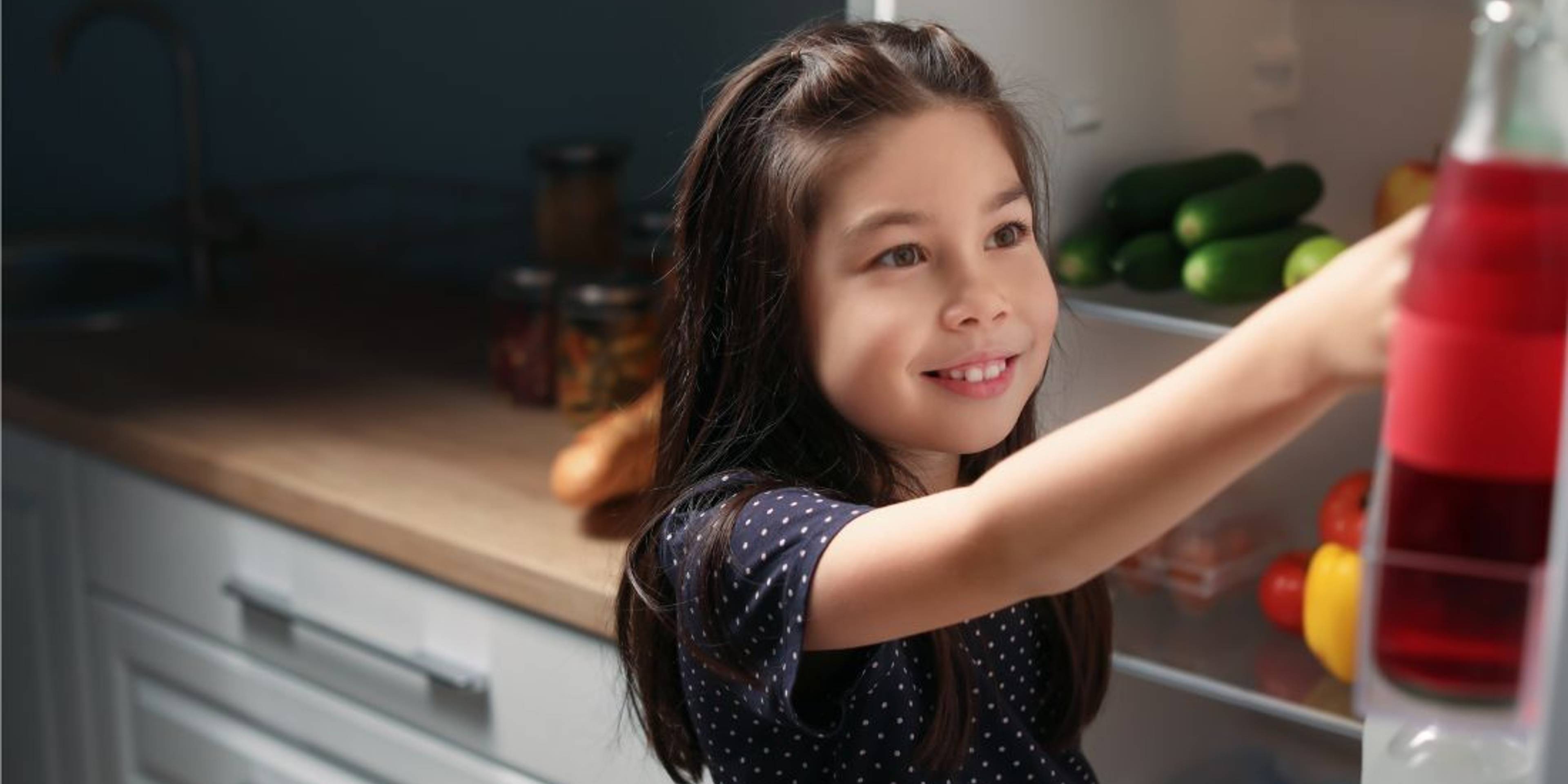February 08, 2021
How can we explain Covid to our four year old without frightening him?

My husband and I wondered if you have any advice on how we can explain what is happening with COVID-19 to our 4 year old without frightening him? He has started asking more questions about why we can’t visit grandparents and his cousins.
As the parent of older children, it is easy for me to explain the nature of a pandemic, the restrictions and the science that can get us out of lockdown to my tween and teen. However, being the parent of a curious young child at the moment is a tough gig. Happily, there are snippets of good quality advice contained in both the literature on anxiety and available books that can help to scaffold conversations with your young son. Some general advice first. At the moment, we firstly need to focus on the anchors in their lives. Reminding children of all the things that are different can be anxiety-inducing. Instead, let’s remind them of all the things that are staying the same. At home, keep things stable, consistent and steeped in routine. If he asks questions, reply with positive affirmation. “That is a great question, I like it when you ask questions!”. Quash nothing. If he asks specifically about why he can’t see his grandparents and cousins, you might reply in age-appropriate language, using age-appropriate metaphors.
As the parent of older children, it is easy for me to explain the nature of a pandemic, the restrictions and the science that can get us out of lockdown to my tween and teen. However, being the parent of a curious young child at the moment is a tough gig. Happily, there are snippets of good quality advice contained in both the literature on anxiety and available books that can help to scaffold conversations with your young son.
Some general advice first. At the moment, we firstly need to focus on the anchors in their lives. Reminding children of all the things that are different can be anxiety-inducing. Instead, let’s remind them of all the things that are staying the same. At home, keep things stable, consistent and steeped in routine.
If he asks questions, reply with positive affirmation. “That is a great question, I like it when you ask questions!”. Quash nothing. If he asks specifically about why he can’t see his grandparents and cousins, you might reply in age-appropriate language, using age-appropriate metaphors. For example, there is a virus called Corona which is playing hide and seek with us and for a little period of time, we need to hide from it. Superhero scientists are trying to track it down and capture it first and, until they do, we are playing hide and seek from it too. It is like a giant treasure hunt. We can help all the superheroes by washing our hands, wearing masks (as adults) and talking to Granny and Grandpa on Zoom for a little while longer. The tone should be positive and affirming but also hopeful. If he is particularly interested in the virus itself, there is a growing market in helpful ‘explainer’ resources: videos by Nanogirl or books such as ‘The Lonely Fox’ by Beal, ‘Coronavirus: a book for kids’ by Margolin, ‘The World Made a Rainbow’ by Michelle Robinson and ‘Why We Can’t Hug’ by Eoin McLaughlin. It is always a good idea to read or view before sharing with your particular child and you may choose to pick out little bits from these materials, which you know are suited to your child’s level of maturity.
Ensure that your child doesn’t overhear conversations about the virus, death tolls and how desperate you are to see one another again. Keep chats with grandparents bright and breezy when in earshot of your son. Schedule new, fun time with grandparents over Zoom – perhaps they could commit to a storytime with your son once a week? Encourage your son to communicate with them using other formats, such as sending postcards, talking on the phone, sending video clips of each other having fun and laughing.
Optimism tends to ignite resilience. It can be helpful to plan all the lovely things we want to do with our grandparents and cousins as soon as we can.
During this particular time, amplify your child’s access to play. Do watch the video on the importance of children’s play within the Tooled Up library and listen to the podcast with Dr Helen Dodd, a leading expert on play and anxiety.
Anxiety researchers such as Helen Dodd from all over the country are highlighting some key tips to help the parents of children in the early years (Emerging Minds, 2020). Their advice is to invest in self-care at this time – the stronger and more positive you can feel, the better. They suggest focussing on healthy routines, maintaining boundaries at home, being consistent in your responses and valuing outdoor activity. They advise prioritising a lot of free play for your child and to encourage drawing and the expression of feelings (which can occur through play or simply through little chats on walks). They suggest that we acknowledge our children’s emotions; “I can see you are a little bit disappointed we can’t see grandpa today, I am a little bit disappointed too.” Disappointment is understandable and ok, but remaining positive, proactive and forward-thinking is important. The latter is easier said than done, but worth it as a means of ring-fencing your child’s wellbeing and happiness during this most challenging of times.
More Parenting Questions

Mar 20, 2025
Help! My five year old is wetting the bed at night. What can I do?
You're not alone! Nocturnal enuresis, or bedwetting, is common in young children. We've asked paediatrician, Dr Christine Riyad, for advice.

Mar 17, 2025
My 10 year old is experiencing big emotions. Do you have any advice?
We've asked Dr Sophie Nesbitt, Consultant Child Psychologist, for her top tips.

Feb 12, 2025
Is it ok for my four year old to still use a dummy?
It's completely natural to feel concerned when your child continues using a pacifier or sucking their thumb beyond the toddler years. We've asked paediatrician, Dr Christine Riyad, for advice.

Dec 31, 2024
My son wants to buy his girlfriend an 18th birthday present. Help!
Give yourself a pat on the back as your teen is asking YOU for advice. It is a sign that there is good communication between you, and that he sees you as a source of knowledge! I think his question is a wonderful one. Why? Because it shows he values the relationship, recognises the importance of a milestone birthday and knows that gift-buying is not a simple activity.

Dec 18, 2024
What do we need to consider when thinking about hiring a tutor?
Private tutoring can be a great way to support your child's education, but finding the right person can also feel overwhelming. The tutoring industry is largely unregulated in the UK and so it can be challenging to know where to start or what to look for.

Oct 22, 2024
My 11 year old daughter is always hungry. Should I be concerned?
This is a common concern for many parents. Engaged and attentive parents are generally mindful of their child’s relationship with food. This is not surprising given the shameful narrative surrounding the idea of being overweight or obese, and the association that is often made that this is linked to neglectful parenting.

Jun 03, 2024
How can I best support my son with changes to his class next year?
Firstly, it is normal to worry about changes that lie ahead for our children and to worry about their ability to cope. You aren’t alone. The start of a new academic year is always full of changes to school life. New classrooms perhaps? Timetables? Teachers, pupils, curricula, canteen menus? You sound like you are holding a lot of anticipatory anxiety about the changes that are forthcoming. These changes have likely been explained to you by the school, and perhaps you still feel fearful?

Apr 22, 2024
How can I support my teen through a break up?
Early teen romances can certainly feel exciting and exhilarating but most are also short-lived, and supporting our children through them is something we will likely have to do several times over the years to come. Here are some tips to help you to support your daughter.

Feb 13, 2024
How can I support my child’s move to a new school where he doesn’t know anyone?
Hello! Thanks for your question. When I was reading through it, the thing that stood out first was the description of your son as unconcerned about impending changes and “confident socially”. This is good news indeed and bodes well, although, as you suggest, it is prudent not to assume that he has zero concerns at all about the upcoming school move.

Aug 03, 2023
What do we need to consider when buying our child a smartphone?
First of all, well done considering this important decision ‘as a family’. Buying a first phone for a child can be a financial commitment but, truth be told, it’s also a decision that can impact on all aspects of their lives: mental health, wellbeing, resilience, friendships and even their learning. It is important to think of it as a significant decision which deserves research and reflection. A smartphone isn’t just a phone. Essentially, it is a hand-held computer that, once connected to the internet, can give access to a digital frontier occupied by five billion people.